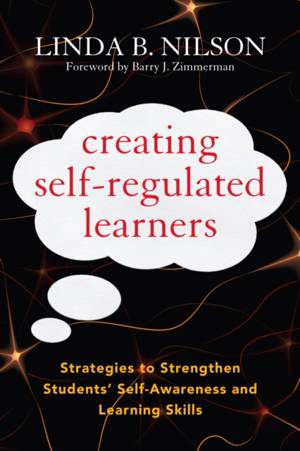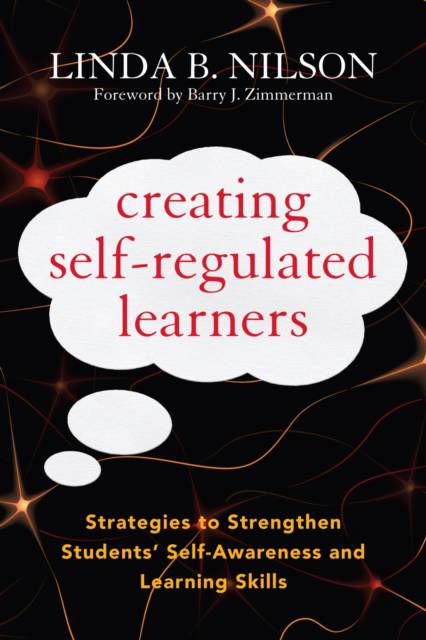
- Afhalen na 1 uur in een winkel met voorraad
- Gratis thuislevering in België vanaf € 30
- Ruim aanbod met 7 miljoen producten
- Afhalen na 1 uur in een winkel met voorraad
- Gratis thuislevering in België vanaf € 30
- Ruim aanbod met 7 miljoen producten
Creating Self-Regulated Learners
Strategies to Strengthen Students' Self-Awareness and Learning Skills
Linda B NilsonOmschrijving
Most of our students neither know how learning works nor what they have to do to ensure it, to the detriment both of their studies and their development as lifelong learners.The point of departure for this book is the literature on self-regulated learning that tells us that deep, lasting, independent learning requires learners to bring into play a range of cognitive skills, affective attitudes, and even physical activities - about which most students are wholly unaware; and that self-regulation, which has little to do with measured intelligence, can be developed by just about anyone and is a fundamental prerequisite of academic success.Linda Nilson provides the theoretical background to student self-regulation, the evidence that it enhances achievement, and the strategies to help students develop it. She presents an array of tested activities and assignments through which students can progressively reflect on, monitor and improve their learning skills; describes how they can be integrated with different course components and on various schedules; and elucidates how to intentionally and seamlessly incorporate them into course design to effectively meet disciplinary and student development objectives. Recognizing that most faculty are unfamiliar with these strategies, she also recommends how to prepare for introducing them into the classroom and adding more as instructors become more confident using them.The book concludes with descriptions of courses from different fields to offer models and ideas for implementation. At a time of so much concern about what our students are learning in college and how well prepared they are for the challenges of tomorrow's economy and society, self-regulated learning provides a reassuring solution, particularly as studies indicate that struggling students benefit the most from practicing it.
Specificaties
Betrokkenen
- Auteur(s):
- Uitgeverij:
Inhoud
- Aantal bladzijden:
- 180
- Taal:
- Engels
Eigenschappen
- Productcode (EAN):
- 9781579228668
- Verschijningsdatum:
- 27/09/2013
- Uitvoering:
- Hardcover
- Formaat:
- Genaaid
- Afmetingen:
- 155 mm x 231 mm
- Gewicht:
- 417 g

Alleen bij Standaard Boekhandel
Beoordelingen
We publiceren alleen reviews die voldoen aan de voorwaarden voor reviews. Bekijk onze voorwaarden voor reviews.











